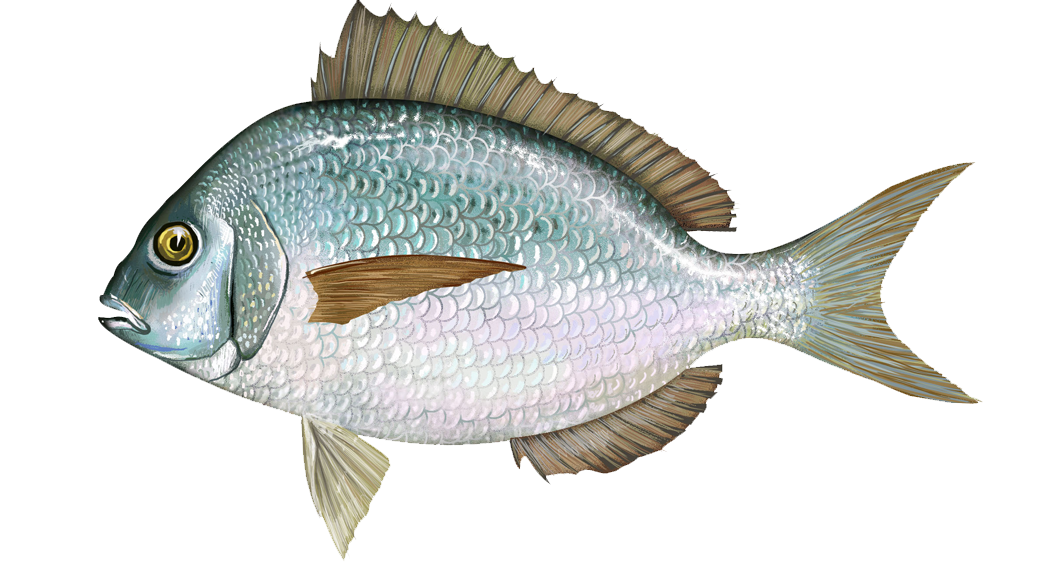Longfin Squid 2024-2026 Specifications
The Council adopted near status-quo longfin squid specifications for 2024-2026. Slightly more squid were set aside for potential discards, resulting in a commercial quota of 22,894 metric tons (approximately 51 million pounds) for these years. The Council notes that a research track stock assessment for longfin squid is beginning later this year and is scheduled to be reviewed in early 2026. A follow-up management track assessment would then be conducted and used to determine catches for 2027 and beyond.
Illex Hold Baseline Framework
The Council continues development of a framework to consider a volumetric vessel hold baseline requirement and upgrade restriction for all Illex limited access permits. A similar volumetric requirement is in place for the directed mackerel fishery, and most regional limited access programs have other baselines (horsepower and length) to control increases in fishing power/capacity. About 30 of the current 76 Illex limited access permits already have this requirement and upgrade restriction due to their mackerel limited access permits, so this action would affect the other 46 permits. The Council reviewed the draft alternatives and discussed several technical issues related to implementation of such a baseline. The Mackerel, Squid, and Butterfish Committee will meet before the Council takes final action later in 2023. Additional information and updates are available on the Illex Hold Baseline Framework page.
East Coast Climate Change Scenario Planning
The Council reviewed the outcomes of the recently completed East Coast Climate Change Scenario Planning Initiative, including two documents summarizing the main themes and potential actions that emerged through the process. These documents include a report of the East Coast Scenario Planning Summit meeting held in February 2023, as well as a Potential Action Menu that expands on, clarifies, and prioritizes the governance and management actions identified during the summit. The Potential Action Menu is intended to serve as a living document that will continue to guide collective and individual priorities for East Coast management organizations for potential actions identified through the scenario planning process.
The Council also reviewed staff recommendations for near-term and potential longer-term actions for the Mid-Atlantic Council to undertake in response to the scenario planning process. Based on the Council’s feedback, several actions will be added to the draft 2024 implementation plan for consideration by the Executive Committee in October. In addition, an East Coast Climate Coordination Group has been formed consisting of leadership from all participating East Coast management organizations. This group will be responsible for tracking progress on the scenario planning actions, estimating resources needed, and supporting coordinated implementation of actions. The group will meet this fall to identify possible collective priorities for addressing potential actions that require coordination among multiple groups.
NOAA Fisheries Climate Governance Policy
The Council discussed development of comments on a draft NOAA Fisheries procedural directive titled “Guidance on Council Authority for Preparing Fishery Management Plans for Stocks that May Extend across the Geographic Areas of more than one Council, pursuant to MSA §304(f)” (also referred to as the “Fisheries Climate Governance Policy”). The draft policy is intended to provide guidance on when and how the Secretary of Commerce will review and assign management authority over fisheries found across more than one Council jurisdiction. NOAA Fisheries has invited the regional fishery management councils to provide comments on the draft policy, with a deadline of November 17, 2023.
During this meeting, the Council discussed SSC comments and preliminary staff comments on the draft policy, both of which highlight a number of serious concerns about the policy itself and its potential implications for Mid-Atlantic fisheries and stakeholders. The following are several key points that were discussed by the Council:
The draft policy is overly prescriptive, lacks specific objectives, and does not adequately describe the problem that it is attempting to address.
The draft policy treats changes in Council management authority as a first course of action for addressing shifting stock distributions. Revisions of management authority could be extremely disruptive and should be exercised as a last resort when other approaches to address governance and representation concerns (such as those identified through the East Coast Climate Change Scenario Planning Initiative) have been deemed inadequate.
The proposed process could lead to near-constant reviews for some species, creating the possibility of frequent changes in management authority.
Some of the review criteria are potentially problematic and/or unclear in their underlying intent, rationale, and technical justification. The heavy reliance on commercial revenue and recreational fishing effort, as well as the inclusion of “certain Council actions” as a review trigger, are particularly concerning.
The draft policy does not acknowledge the complexities of evaluating changes in stock distribution and does not explain how such analyses would utilize the best scientific information available and what kind of peer review would be conducted.
The draft policy is poorly organized, difficult to follow, and lacks critical details needed to ensure consistent and predictable implementation of the policy.
The Council generally expressed support for the staff and SSC comments and directed staff to draft a letter for submission to NOAA Fisheries. The Council also agreed to solicit public comments on the draft policy to be submitted to NOAA Fisheries separately. Additional information and updates are available on the Council’s Climate Governance Policy page.
Research Set-Aside Program Redevelopment Update
The Council received an update on the status of the potential redevelopment of the Council’s Research Set-Aside (RSA) program. In 2014, the Council voted to suspend the RSA program due to a number of concerns associated with the program that included administrative, oversight, enforcement, and science issues. In June 2022, the Council reviewed and supported the continued development of a redesigned RSA program framework that would try to address the issues of the original program. The Atlantic States Marine Fisheries Commission (Commission) and state partners would play a critical role in the dockside administration and enforcement components of a redesigned program, particularly for jointly managed species.
Given the importance of Commission and state partner cooperation, the Council requested feedback from the ASMFC regarding their interest in redeveloping the RSA program. The Commission’s Policy Board met in July and recommended the Council only consider an RSA program for those species that are not jointly managed with Commission (i.e., summer flounder, scup, black sea bass, bluefish, and spiny dogfish would not be part of an RSA program). The Policy Board suggested that this approach would address monitoring and enforcement issues, minimize the administrative burden on the states, and allow the Council to potentially continue redevelopment of an RSA program.
However, the Council noted that without the support and participation from the Commission and state partners, and with the loss of revenue generated from jointly managed species (historically accounted for 95% of all RSA revenue) to support research, implementing a successful RSA program would be extremely challenging and potentially impossible. Given these challenges, the Council agreed to continue the suspension of the RSA program and work with regional management partners to prioritize cooperative research and identify funding opportunities to support the Council’s research needs.
National Standard 4, 8, and 9 Guidelines
The Council developed comments in response to the National Marine Fisheries Service (NMFS) Advanced Notice of Public Rulemaking (ANPR) regarding potential future changes to the guidelines for National Standards 4 (allocation), 8 (communities) and 9 (bycatch). It’s been 25 years since the guidelines for the National Standard 4 were last revised and 15 years for National Standard 8 and 9 guidelines. Given the amount of time since the last revisions and an increasing number of management challenges, NMFS is seeking comment on those areas that may benefit from further review and/or update with a focus on climate-related impacts, including changes in stock distribution, and equity and environmental justice (EEJ) considerations.
The Council identified a range of comments for each National Standard, but overall felt that the existing guidelines provide the Council with sufficient direction to address current management challenges, including those related to climate change, and include enough flexibility to consider future issues and priorities and, as such, should remain largely unchanged. Staff will develop a comment letter for NMFS consideration to be submitted by the comment period deadline of September 12, 2023.
Council Awards
Award of Excellence









